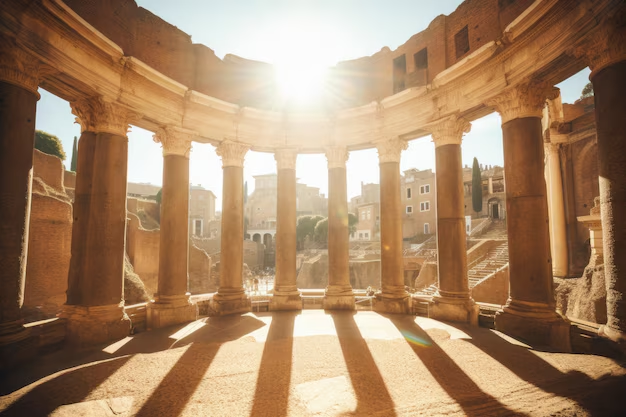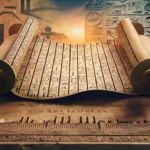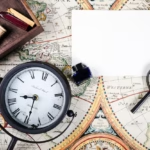History is a tapestry woven with countless threads of decisions, events, and actions. While every moment contributes to the fabric of time, certain key moments have left an indelible mark on humanity, shaping our world in profound ways. These pivotal moments, often unpredictable and sometimes tragic, have altered the course of nations, societies, and civilizations.
In this article, we will explore several key moments in history that not only defined their era but also influenced the future in ways we continue to experience today.
1. The Fall of the Roman Empire (476 AD):
One of the most significant events in world history was the fall of the Roman Empire, marking the end of antiquity and the beginning of the Middle Ages. The empire, which had ruled much of Europe, the Middle East, and North Africa, crumbled due to internal decay, invasions from barbarian tribes, and a weakening central government. The fall ushered in a period of instability and transformation that would lay the foundation for the development of modern European states and institutions.
The collapse of Rome left a power vacuum, leading to the rise of new powers, such as the Byzantine Empire in the east, the Holy Roman Empire, and eventually, the rise of nation-states.
2. The Signing of the Magna Carta (1215):
In 1215, English King John was forced to sign the Magna Carta, a document that became one of the cornerstones of constitutional law. It established the idea that even the king was not above the law and laid the groundwork for the development of legal and political systems that emphasize individual rights, due process, and the rule of law.
The Magna Carta’s legacy influenced not only English law but also the development of democratic principles around the world. It inspired future constitutions and declarations of rights, such as the U.S. Constitution and the Bill of Rights.
3. The Discovery of the New World (1492):
Christopher Columbus’s voyage across the Atlantic in 1492 changed the world forever. Although Columbus believed he had reached Asia, he had actually arrived on the shores of what became known as the “New World.” This event marked the beginning of European colonization of the Americas, leading to the exchange of goods, cultures, and ideas between the Old and New Worlds—often referred to as the Columbian Exchange.
The discovery led to massive shifts in global trade, the spread of European culture, and the tragic subjugation and near destruction of indigenous civilizations. The reverberations of Columbus’s discovery are still felt today in the demographic, cultural, and political landscapes of the Americas.
4. The American Revolution (1775-1783):
The American Revolution was a defining moment in the creation of modern democracy. Colonists in the thirteen American colonies, frustrated with British rule, declared independence in 1776. The resulting war led to the formation of the United States of America, a nation founded on principles of liberty, equality, and democracy.
The American Revolution not only reshaped the political landscape of North America but also had a profound influence on the French Revolution and other movements for independence and democracy around the world. It introduced ideas that continue to shape the values of modern democratic societies.
5. The Industrial Revolution (18th – 19th Century):
The Industrial Revolution, which began in the late 18th century in Great Britain, transformed the world in ways previously unimaginable. The shift from agrarian economies to industrialized societies revolutionized production, transportation, and communication. It led to the creation of factories, the rise of urbanization, and the development of new technologies like steam engines and mechanized textiles.
The Industrial Revolution fundamentally changed how people lived and worked, leading to the rise of the modern capitalist economy, urbanization, and the creation of a globalized world. It also sparked significant social changes, such as the rise of labor movements and the demand for workers’ rights.
6. World War II (1939-1945):
World War II was one of the most devastating conflicts in history, resulting in tens of millions of deaths and the complete reshaping of the global order. The war led to the downfall of fascism in Europe, the rise of the United States and the Soviet Union as superpowers, and the establishment of the United Nations in an effort to prevent future global conflicts.
The war also exposed the horrors of the Holocaust and led to movements for decolonization across Africa, Asia, and the Middle East. The post-war world was characterized by the Cold War, the establishment of the European Union, and the global push for human rights and self-determination.
7. The Fall of the Berlin Wall (1989):
The fall of the Berlin Wall in 1989 symbolized the collapse of communist regimes in Eastern Europe and the end of the Cold War. The wall, which had divided East and West Berlin since 1961, came down as East Germans sought to reunite with their families and assert their desire for greater freedom.
The event was a significant moment in the global shift toward democracy and the market economy, leading to the reunification of Germany and the eventual dissolution of the Soviet Union. It marked the end of decades of ideological and military tension between the capitalist West and the communist East.
Conclusion:
These are just a few of the countless moments in history that have shaped the world we live in today. From the fall of empires to revolutions, discoveries, and conflicts, each of these events serves as a reminder of the power of human actions to transform the course of history. While the past is a reflection of what has come before, it continues to inform and shape the future.
History is more than just a series of dates and facts; it is the story of humanity’s progress, struggles, and triumphs. As we move forward, understanding the moments that have shaped the world can help us better navigate the challenges and opportunities of the present and future.




